Chile crisis: Fearlessness and anger drive protesters
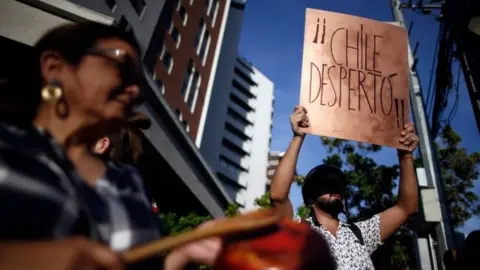 AFP
AFPOf all the chants on the streets of Santiago on Tuesday, it was "Chile has woken up" that rang out the loudest.
The chant is shouted in the protests, waved on placards and sprayed on buildings across the country. Chile has woken up and there is no going back.
Whether in the protests or stuck in one of the petrol station or supermarket queues that have sprung up across cities, people here have largely got behind those who have been calling for change.
"We need to share a piece of the pie with everyone and have a better Chile," said Luis Serrano as he sat in a long queue outside a petrol station in the east of the capital, Santiago.
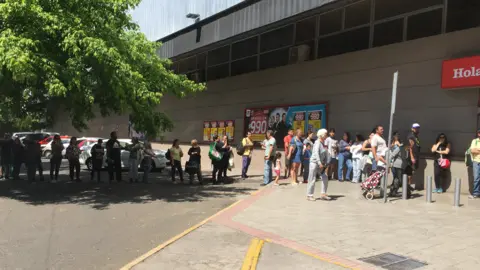
"We need to make this country better because it's in our hands."
Presidential apology
By Tuesday night, it seemed that President Sebastián Piñera had finally taken the demands into account.
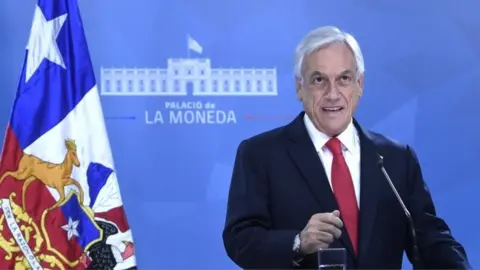 AFP
AFPHe started off by apologising on national television and announced some concessions including higher wages and an increase in pensions, as well as higher taxes for the rich.
It was an about-turn from Sunday when he had declared the country was at war.
The measures he proposed had been a long time coming but whether they will be enough to empty the streets of protesters is unclear.
Chileans' anger towards the political elite is palpable and there are still calls for President Piñera to resign.
"Chile has lots of money but it's totally unfair," Nicole Contreras told me through tears. "My family is middle class and they've busted their backsides, all by themselves."
She added that it was not hard to fix the problem: "The politicians are the ones who are stealing."
History repeating itself
This wave of protests may have been kickstarted by a rise in the price of metro tickets, but the resentment goes back further than that, says Claudia Sanhueza.
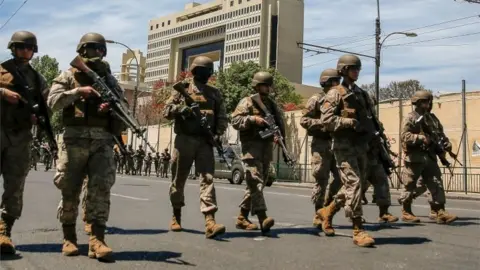 AFP
AFPThe director of the Centre for Economics and social Policy at the University Mayor singles out 2006 as a crucial year.
That was when high-school students protested against the country's education system in a series of demonstrations known as the Penguin Revolution in reference to the black and white uniform the students wore.
Then in 2011, it was the turn of the university students to call for change.
"The political elite made an agreement but didn't include their [students'] thoughts and the agreement didn't respond to their demands," says Ms Sanhueza.
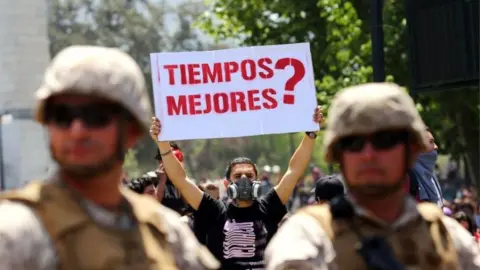 AFP
AFP"From that time on, there have been a lot of protests and the political elite doesn't listen."
She says more players including social movements and non-governmental organisations need to be invited to help resolve this crisis and social problems in general. Limiting discussion to the political elite is no longer the way to do politics.
That is a feeling echoed by many. On Tuesday, President Piñera invited opposition parties to discuss the protests but not every party accepted.
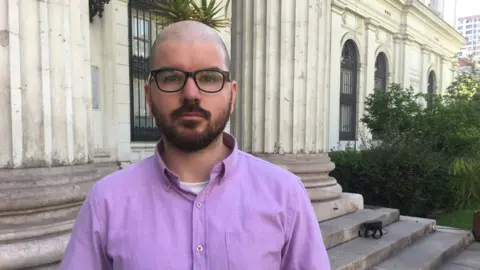
"Every time they have done this, they postpone the demands, every time," says opposition politician Giorgio Jackson of the Democratic Revolution Party.
He said he wanted to avoid an empty photo opportunity. Instead, his party handed a letter suggesting proposals.
Soldiers on the streets
While Mr Piñera has announced new measures to calm the situation, for now, the soldiers remain on the streets. They are outside supermarkets, on street corners, driving down the street in tanks and watching the protests.
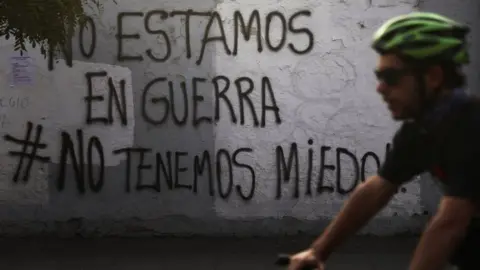 Reuters
ReutersIn a country where military rule ended less than 30 years ago, that makes people nervous, even for those protestors too young to remember it.
Nicolás Lecaros is a medical student who on Tuesday came down to Plaza Italia, one of the protest hotspots in Santiago, with his fellow doctors to lend a hand.
He said he could not sit by and study while people were on the streets so he wanted to help in the best way he knew how, by offering medical help to any protester who got into trouble.
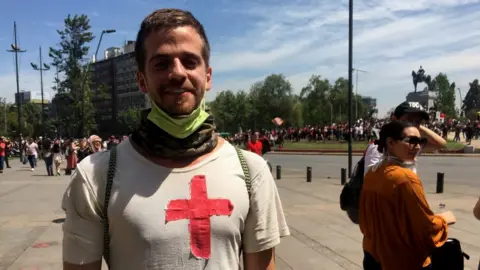
"I haven't lived through something like this before so it's very shocking for us [young Chileans]," he said of the soldiers on the streets. "I hear my parents [talk about it], who have lived through it and they have a very big feeling of fear. It's not normal, it's the biggest crisis we have ever experienced."
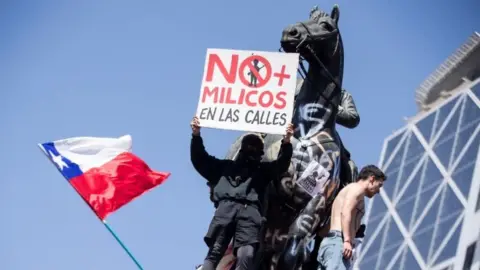 EPA
EPAHe says he is not scared though. "The protesters are giving us courage to keep doing this, so I practically forget the fear I had before."
That fearlessness is obvious - the protesters are not staying silent. But will President Piñera's peace offering be enough to quell this anger?
Chileans will wake up on Wednesday and decide.
